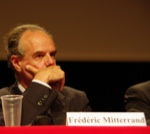Frédéric Mitterrand is not just anyone. And he knows it. The nephew of the former President of the Republic nevertheless pretended to ignore the risks of a mix of genres in the modern era: that of sexuality and politics. The first because it is no longer just a matter of bodies, but of psychic perception mixed with storytelling. The second because since Nicolas Sarkozy’s presidency, private life has almost belonged to the public domain. Let’s clarify both.
First of all, in our contemporary societies, physical sexuality, sometimes presented as a simple mechanics of fluids, is almost no longer subject to taboos. On one hand, we can applaud this liberalism without ignoring, on the other hand, the ravages of the image and their psychological costs. Bodies are shown, offered, sold—as evidenced by the increase in “student” prostitution in Europe—as objects of another’s desire. A vast deception in merchandise because unlike the legal adage regarding movable property, in terms of the body, possession does not equate to rights. One might add that sexuality remains a matter too serious to be entrusted solely to the corporeal domain.
Despite appearances, the violent criticisms directed at the new Minister of Culture do not concern his actions, known since the publication of his book. Actions taken by a free human being in his therapeutic work “Mauvaise vie.” They rather concern the man’s relationship with his narrative and the ambiguous claims he makes of his experiences. In the genre of intimate confessions, Frédéric Mitterrand had an illustrious predecessor: with the same detachment, Saint Augustine narrates the pleasures of the city, a “furnace” where, explains the future Father of the Church, “I would wander the streets of Babylon, wallowing in its mud as if in precious nards and ointments.” To the point, still at the evening of his life, of being haunted in his sleep by nocturnal reminiscences that “not only brought delight but also consent and the exact repetition of deeds.” In the meantime, the Tolle, lege had transformed the turbulent adolescent and the frequenter of Thagaste’s “houses” into the dignified and chaste Bishop of Hippo. If we strictly adhere to the “incriminated” facts, nothing truly distinguishes, a thousand and five hundred years apart, the man from the gardens of Milan from the one on rue de Valois.
The difference comes later: the attribution of a ministerial portfolio does not yet equate, if we dare say, to the grace of Augustinian redemption. Frédéric Mitterrand demonstrated a peculiar ambivalence in the use, even the exploitation, of his patronymic: he cannot, on one hand, acknowledge and “surf” on the historical weight of it to celebrate his arrival at the Ministry of Culture and his experiences to justify public support for the filmmaker Roman Polanski, and, on the other, accuse the press of attacking him for the same reasons. Psychoanalysis, which always juggles with issues of family tyranny, knows it: a name and its history weigh heavily. But it is a whole.
Frédéric Mitterrand should then have been wary of three consequences induced by his appointment: first of all, in choosing his Minister of Culture for the name he bears, Nicolas Sarkozy aimed to sow discord on the left. It is partly the case. But his decision also places his minister and government stricto sensu in a bind and ultimately sows discord on the right. A new “perverse effect” of lineage. As a member of the government team, F. Mitterrand can furthermore hardly reproach the French press for initiating a trend –addressing the private lives of officials– when it constitutes one of the main Élysée breaks on the subject: the display and political capitalization of the private sphere. Moreover, the writer and former television host has become the collateral victim of a presidential communication strategy based on a relative dramatization of themes related to violence and sexuality. Undoubtedly the “crisis” has also passed through here, bringing with it a return to morality and ethics, two notions to which the spirit of a people clings when some material assets come to lack.
The philosopher Jean-Jacques Rousseau already sensed it: “by identifying with the suffering being, we only suffer as much as we judge that he suffers,” especially, he added, when the other conveys to us through words the tale of his misfortunes. Doesn’t the fabrication of a “scandal” and the condemnation of a “scapegoat” follow the same path?


